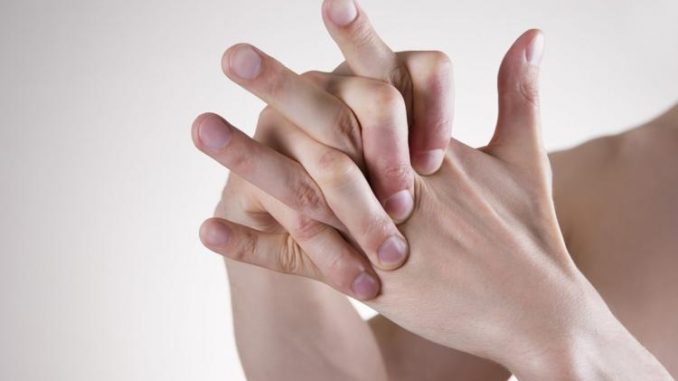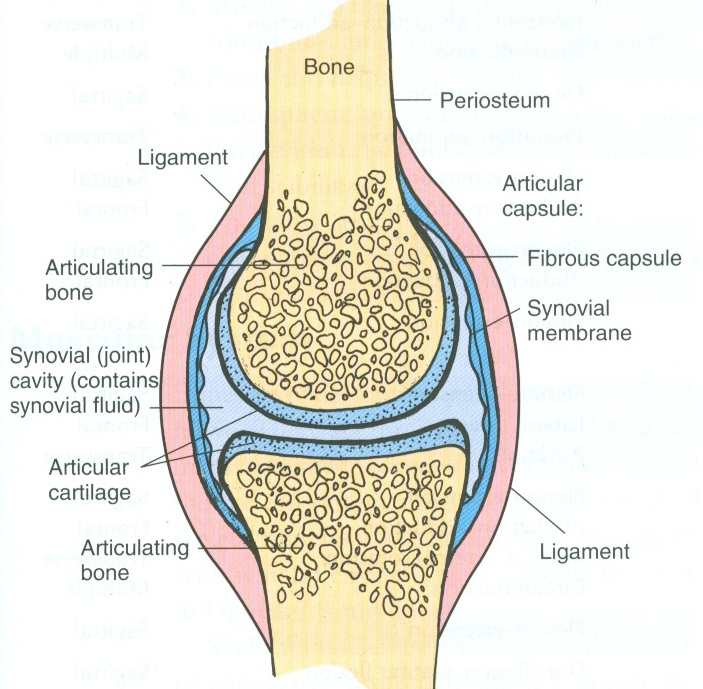
Structure of a typical joint:
- Diarthrodial joints consist of two bones coming in contact at their cartilage surfaces which are surrounded by a joint capsule.
- Synovial fluid (a lubricant present inside the joint capsule), serves as a source of nutrients for the cells and also protects and maintains the joint cartilage.
- This fluid not only prevents the friction between the bones but also contains dissolved gases like oxygen, nitrogen and carbon dioxide.
- The joints that “crack” are the knuckles, knees, ankles, back, and neck. The fingers or knuckles (the inter-phalangeal and the metacarpo-phalangeal joints) are the easiest to crack or pop.

There are different reasons why these joints produce the sounds.
- Escaping gases:
- The amount of synovial fluid contained in the joint limits their movement.
- When the pressure inside the capsule drops to a point at which the dissolved gases can escape the solution, then only the fluid can expand.
- The volume and movement of joints increase once the gases come out of the fluid.
- The cracking or popping sound is thought to be caused by these gases rapidly coming out of solution when we stretch the joints.
- If we take an X-ray of the joint after cracking, you can see a gas bubble inside the joint.
- The joint cannot be cracked again until the gases have dissolved back into the synovial fluid (that normally takes 20 minutes), which explains why we cannot crack the same knuckle repeatedly.
Watch it on You tube : Here’s what happens to our knuckles when we crack them
- Movement of joints, tendons and ligaments:
- When a joint moves, the tendon’s (connective tissue that connects muscles with bone) position changes and moves slightly out of place.
- As the tendon returns to its original position, we can hear a snapping sound.
- In addition, our ligaments may tighten as we move our joints that makes a cracking sound in our knee or ankle.
- Rough surfaces:
- Arthritic joints make sounds caused by the loss of smooth cartilage (at the ends of bones in joints) and the roughness of the joint surface.
Is joint cracking harmful?
- If we are feeling pain when our joints pop, then we should seek a health care professional.
- In terms of knuckle cracking, some studies show that knuckle cracking does not cause serious harm.
- Other studies show that repetitive knuckle cracking can do some damage to the soft tissue of the joint and may also lead to a weak grip and a swelling hand.